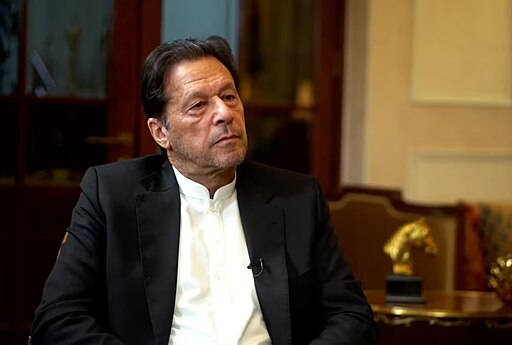Court seeks procedure details and government’s position on military detention of PTI founder
The Islamabad High Court (IHC) has directed the federal government to provide a clear stance on whether former Prime Minister Imran Khan, founder of Pakistan Tehreek-e-Insaf (PTI), will be subjected to a military trial. This request comes amidst ongoing legal proceedings challenging the potential detention and trial of Khan in a military court.
During a recent hearing, IHC Justice Miangul Hassan Aurangzeb instructed the Ministry of Defence to clarify the procedure for trying civilians in military courts. The court’s request follows the submission of statements from politicians and military officials concerning the trial of Khan. Justice Aurangzeb emphasized that if such statements originate from military officers, they must be taken seriously.
Embed from Getty ImagesAdditional Attorney General (AAG) Manawwar Iqbal Duggal informed the court that, to date, the Defence Ministry had no information regarding Khan’s potential military trial or detention. He added that any application received on this matter would be handled according to the law.
Justice Aurangzeb questioned whether the petition challenging Khan’s potential military trial was premature, suggesting that if the government confirmed a military trial, the court could then proceed with the case. He directed Brigadier (retd) Falak Naz from the Defence Ministry to outline the procedures for civilian trials in military courts, noting that notice should be given to Khan if a military trial were to occur.
The court’s deliberations also highlighted the need for proper notice and procedural adherence if Khan were to face a military trial. Justice Aurangzeb criticized the petitioner’s lawyer for seeking immediate court intervention without formal notice, emphasizing that such matters require procedural regularity.
With no definitive answer from the government yet, the court has adjourned the hearing until September 24, requesting that the AAG return with clear instructions on the matter.
Analysis:
Political: The IHC’s demand for clarity reflects the ongoing tension and legal complexities surrounding Imran Khan’s potential military trial. The government’s position on this issue could have significant implications for political dynamics and the judicial process in Pakistan.
Social: The potential military trial of a former prime minister raises questions about the fairness and transparency of the legal process. The outcome of this case could impact public perception of the judiciary and the military’s role in civilian matters.
Racial: While the case primarily involves political and legal issues, the broader context of military involvement in civilian trials may influence perceptions of justice and equality within different segments of Pakistani society.
Gender: The case does not directly involve gender issues but highlights broader concerns about the rule of law and judicial independence, which affect all citizens regardless of gender.
Economic: The legal and political uncertainty surrounding Khan’s trial could have economic implications, particularly if it affects investor confidence or the stability of the Pakistani political environment.
